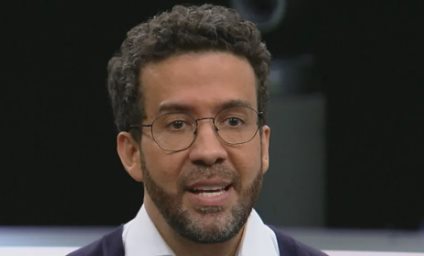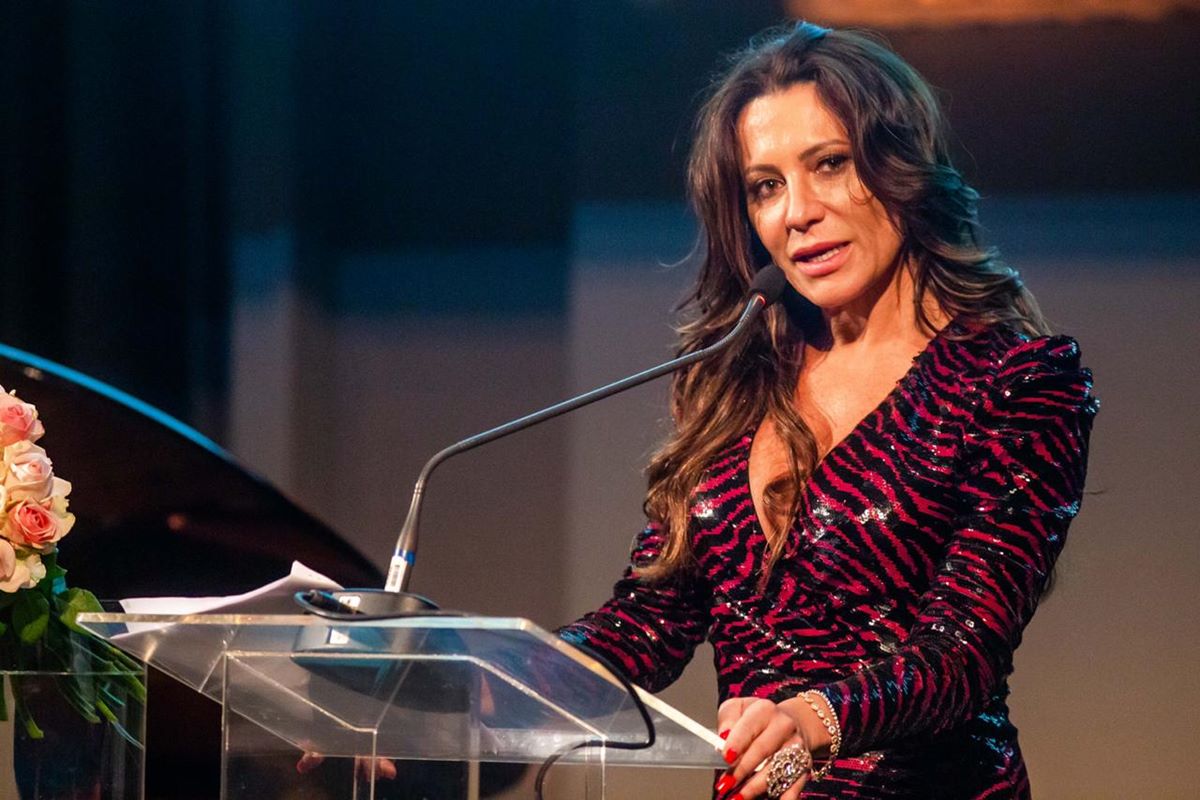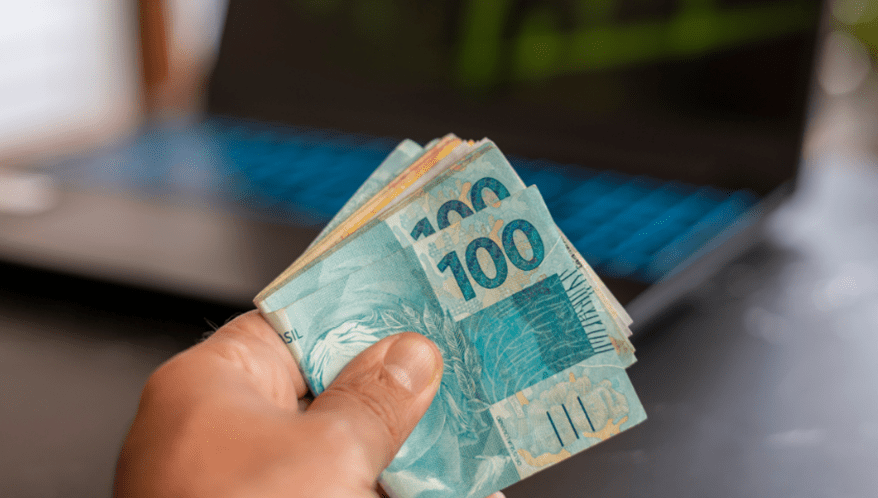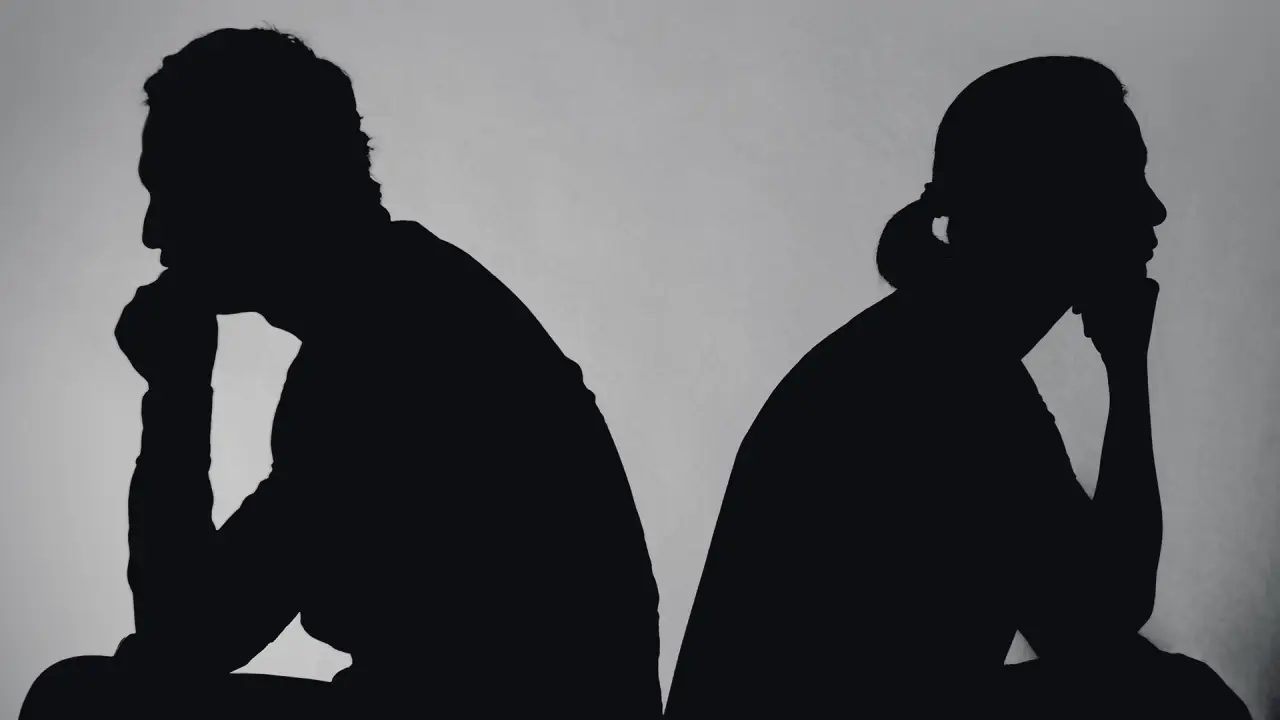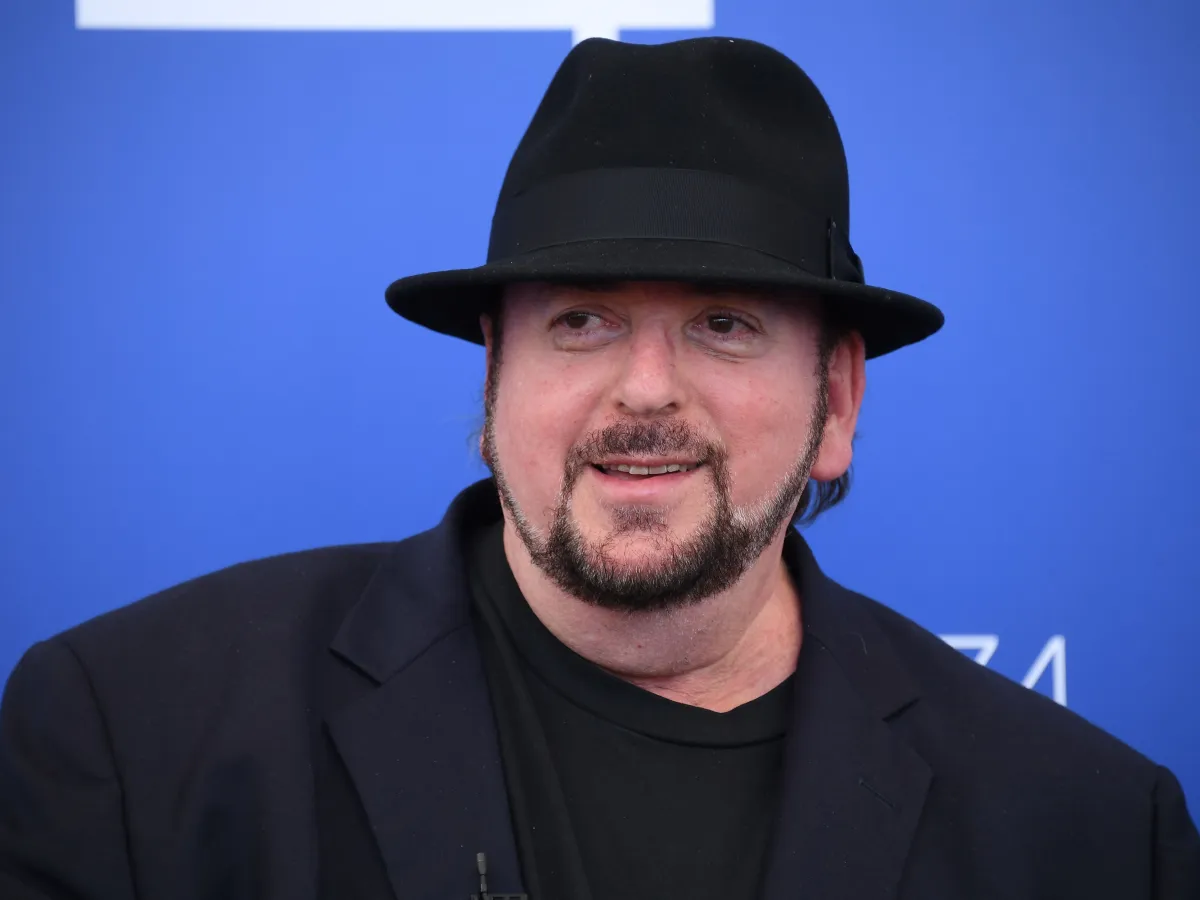Saiu no site THE GUARDIAN :
Veja publicação original: Sisters, this is our moment to say Time’s Up
Women in entertainment and activists speak out on sexual harassment, discrimination and abuse
Dear Sisters,
A little over a month ago Time’s Up was launched. You might have read a public letter in the New York Times. You may have noticed women wearing black on the red carpet. You might have seen women coming forward to share their stories of harassment. Maybe you identified with some of the stories these women shared.
Maybe you found yourself nodding as you recalled similar moments in your own life.
All over the world, women have been organising, resisting and speaking out – from Ni Nunca Más in Latin America and the #lifeinleggings movement in the Caribbean, to the Balance Ton Porc movement in France and the #EverydaySexism hashtag in the UK. You might have seen #MeToo. You may have said: “Me too.”
In autumn of last year, when stories came out in the press about sexual harassment, discrimination and abuse in the entertainment industry, 700,000 female farm workers wrote to us to say they stood with us in solidarity. Their letter explained that they knew what we were going through, that they stood shoulder to shoulder with us in our pain and in our belief that a better world was possible. This solidarity between women – activists and survivors – across all industries is what inspired Time’s Up and what continues to galvanise us. This movement is bigger than just a change in our industry alone. This movement is intersectional, with conversations across race, class, community, ability and work environment, to talk about the imbalance of power.
Here in the UK, this movement is at a critical juncture. The gender pay gap for women in their 20s is now five times greater than it was six years ago. Research in the UK has found that more than half of all women said they have experienced sexual harassment at work. A growing reliance on freelance work forces creates power relationships which are conducive to harassment and abuse. Those engaged in insecure contract work are especially vulnerable to exploitation.
While we know women are disproportionately affected by this abuse, we also know there are men in our industry and others that have been subjected to harassment and abuse as part of this system of patriarchal power. And they too have been silenced.
So, what is our industry’s role in promoting a vision of an equal society? We believe it is huge. We believe we need to use our power as communicators and connectors to shift the way society sees and treats us. We need to examine the kind of womanhood our industry promotes and sells to the world.
There is no question that Time’s Up should be and will be a global movement. A movement that is defined and led by those affected by the problem, not by those in power.
As we approach the Baftas – our industry’s time for celebration and acknowledgment, we hope we can celebrate this tremendous moment of solidarity and unity across borders by coming together and making this movement international. Perhaps Time’s Up seems a million miles away to you – started by a group of women with privilege. The truth is, we are all workers, and whether we’re in the limelight or in the shadows, our voices matter. With our collective power, we can galvanize others.
In the very near past, we lived in a world where sexual harassment was an uncomfortable joke; an unavoidable, awkward part of being a girl or a woman. It was certainly not to be discussed, let alone addressed. In 2018, we seem to have woken up in a world ripe for change. If we truly embrace this moment, a line in the sand will turn to stone.
This moment has already raised a staggering $21m for an American Time’s Up legal defence fund. But women all over the world need support and funding in order to be able to fight injustice. The revolution we want and need cannot happen without this resourcing.
So, we invite you to join us in donating to the new UK justice and equality fund, to spread the word to others and be a catalyst for change. Everyone can make a difference by using your platform, your voice and your power as a changemaker.
Finally, we are talking to each other, talking to our employers, our unions, our male allies and challenging our perpetrators and their enablers. Where there was isolation and silence in the film industry there is now connection and voice. Where there was internalisation and self-blame, there is now self-analysis and interrogation. We are connecting and partnering with our fellow workers, women and men, in a truly transformational way. Such unity has been inspirational for all of us. We want you to be part of this.
If you have said “time’s up”, if the stories you have read in the papers have resonated and distressed you – join us in shifting the dial. Let’s make 2018 the year that time was up on sexual harassment and abuse. This is your moment too.
Abi Morgan, Ade Rawcliffe, Alice Eve, Alison Owen, Amanda Posey, Amber Rose Revah, Amma Asante, Amy Morgan, Andrea Gibb, Andrea Riseborough, Anna Duffield, Anne Morrison, Audrey Gagneux, Barbara Broccoli OBE, Beatie Edney, Brett Tyne, Bryony Hannah, Caitriona Balfe, Camille Gatin, Cara Horgan, Cara McKenzie, Carey Mulligan, Caroline Levy, Chanya Button, Charlotte Colbert, Charlotte Riley, Charlotte Ritchie, Ciara Barry, Claire Foy, Clémence Poésy, Coky Giedroyc, Denise Gough, Edith Bowman, Eleanor Tomlinson, Elhum Shakerifar, Eliza Burrows McGill, Elizabeth Georgiou, Elizabeth Karlsen, Elizabeth McGovern, Ella Purnell, Ella Smith, Emerald Fennell, Emilia Clarke, Emily Berrington, Emily Leo, Emma Pegram, Emma Thompson, Emma Watson, Eva Yates, Faye Marsay, Faye Ward, Felicity Jones, Finola Dwyer ONZM, Florence Pugh, Freema Agyeman, Gemma Arterton, Gemma Chan, Gilly Tompkins, Gugu Mbatha-Raw MBE, Gwendoline Christie, Hannah Arterton, Harriet Spencer, Dame Harriet Walter, Hayley Atwell, Hayley Squires, Hope Dickson Leach, Imogen Poots, Isabelle Sieb, Ivana MacKinnon, Ivana Primorac, Jackie Okwera, Jacquie Drewe, Jan Asante, Janette Davidson, Jany Temime, Jaya Campbell, Jenne Casarotto, Jessica Ashworth, Jessica Brown Findlay, Jessica Drake, Jessica Levick, Jessica Malik, Jessica Parker, Jessica Raine, Jessica Swale, Jessie Buckley, Jill McCullough, Jill Taylor, Joanna Natasegara, Jodie Whittaker, Joely Richardson, Jojo Moyes, Josie Rourke, Juliet Nicholson, Kate Hardie, Kate Herron, Kate Kinninmont MBE, Kate Muir, Kate Wilson, Kate Winslet, Katie Leung, Katie Sinclair, Katy McPhee, Keira Knightley, Kim Tserkezie, Kirstie Swain, Kitty Kaletsky, Laura Carmichael, Leanne Davis, Letitia Wright, Libby Durdy, Lily Cole, Lily James, Lindy King, Line Langebek, Liz Gill, Liza Marshall, Lorna Mann, Lucy Bevan, Lucy Fairney, Lydia Wilson, Lyndsey Pugh, Lynsey Muir, Mahalia Belo, Manon Ardisson, Massy Tadjedin, Mia Bays and the board of Bird’s Eye View, Miranda Hart, Nadya Jary, Nana Hughes, Naomi Donne, Naomie Harris, Natasha Dack, Nathalie Emmanuel, Nicky Bentham, Nicola Pearcey, Nicola Walker, Nina Gold, Nira Park, Noma Dumezweni, Noomi Rapace, Olivia Colman, Olivia Poulet, Olivia Williams, Ophelia Lovibond, Pandora Colin, Pearl Mackie, Phoebe Billington, Phoebe Fox, Pippa Beng, Dame Pippa Harris, Polly Kemp, Poppy Delevingne, Rachel Tunnard, Rebecca Hall, Rebecca O’Brien, Rebekah Staton, Rebekah Wray-Rogers, Rebel Wilson, Rosalind Johnson, Rosamund Pike, Rosie Crerar, Rowan Woods, Ruth Greenberg, Ruth Wilson, Saffron Burrows, Sally El Hosaini, Sally Long-Innes, Samantha Barks, Samantha Morton, Saoirse Ronan, Sara Smith, Sarah Brocklehurst, Sarah Gavron, Sarah Jane Wright, Sarah Solemani, Sarah Stephenson, Sheila Atim, Sienna Miller, Sofe Goodwin, Sophie Okonedo OBE, Suzanne Bertish, Sylvia Parker, Tallulah Fairfax, Tamsin Greig, Thandie Newton, Tess Morris, Tessa Ross, Tessa Thompson, Thea Paulett, Thea Sharrock, Tilly Coulson, Tina Gharavi, Tori Parry, Tracey Seaward, Tuppence Middleton, Vanessa Jones, Vanessa Kirby, Vicky Jewson, Vicky McClure, Wendy Wats, Yero Timi-Biu, Zawe Ashton
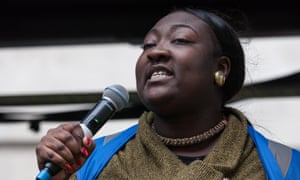
Activists’ letter:
Dear Sisters,
We write today as activists, organisers, advocates and campaigners working to end violence against women and girls. We work in rape crisis centres, specialist black and minority ethnic women’s organisations, disabled women’s organisations, refuges, helplines, advice services, women’s infrastructure organisations, community organisations, women’s campaigning groups, universities, trade unions, women’s networks and more.
We write to you as a diverse group of women, speaking to other women, about the world that we live in, and the one that we know it is possible to create.
In the last few months we have heard a number of women speak out about their experiences of being harassed, assaulted, abused and victimised in the entertainment industry. Over and over again, we have heard stories of powerful individuals, primarily men, who have abused their positions to control women, to violate their bodies, to cause emotional harm and to threaten their livelihoods. We know that many women have also been silenced in a myriad of ways, which include being threatened with further abuse, public shaming, not being able to work and not being believed.
For those of us who do this work, these stories are all too familiar. We bear witness each day to the ways that adult women, young women and girls are subjected to violence in every sphere, from the home to the workplace. We know that many women are subjected to abuse, which is not only about sex and gender, but also about factors such as race, ethnicity, sexuality, class, disability, age and more; and we know that this compounds the marginalisation that women have to face. We recognise that the ways in which women in the entertainment industry have been silenced mirror the ways that women are silenced by individual perpetrators, by companies, by families, by institutions, by communities and by the state. For each woman in the entertainment industry who has spoken out, there are thousands of women whose stories go unheard.
One in 10 women in the European Union report having experienced cyber-harassment since the age of 15 and close to one in three 16-18-year-old girls say they have experienced unwanted sexual touching at school. One in five women in England and Wales have experienced some type of sexual assault since the age of 16. The number of rapes recorded by police in England and Wales is the highest in the EU, according to official 2017 figures.
On average two women are killed by their partner or ex-partner every week in England and Wales.
This needs to end.
These are not isolated incidents. This is about power and inequality; and it is systemic.
We know that as we write about our experiences some will ask us: “But what about the men?” While our work is focused on women and girls, we acknowledge all survivors of abuse. We recognise their experiences as part of a wider system of patriarchal power which disproportionately impacts women and girls and also harms men and boys. We join with all survivors to demand change.
If this change is to happen, we need a major shift across our societies. This shift needs to be intersectional and it needs to attend to all structural inequality and oppressions.
As activists, we welcome the call from our entertainment industry sisters to unite to call TIME on harassment and abuse. We recognise that every woman, everywhere, who has ever spoken out has been part of creating change, even when she has not been believed. We know that these conversations are not new, and that these stories are not exceptional, but the women in the entertainment industry that have spoken out have helped to push issues such as sexual harassment and rape into the public consciousness in an unprecedented way. We believe that this is a moment in time when we can harness our collective energies to dismantle the wall of silence that surrounds violence against women and girls.
To every woman afraid to walk down the streets, or take public transport, we see you. To every woman scared to go home or who is trapped at home, we hear you. To every girl and every young woman who is terrified of going to school, we are with you. To every woman who has been detained, while seeking safety, we believe you. To each and every one of you, who has been subjected to any form of harassment, abuse and/or victimisation, we say this: we hear you. We see you. We believe you. We are with you.
We believe that it is possible to create a different world; one that is equal and just. We believe that it is possible for us to have freedom and safety wherever we are, from our homes to our workplaces. So today we come together with sisters in the entertainment industry to call Time’s UP on sexual abuse, and other forms of abuse, harassment and victimisation.
We call on you to join us in this movement and support our work. Organisations and groups working to create systemic and long-term change in the UK are in desperate need of resourcing. A 2013 survey of European charitable foundations showed less than 5% of funds were targeted towards women. It should therefore come as no surprise that many of the organisations that have been fighting for justice and equality are chronically underfunded.
As government cuts and austerity measures take their grip on our sector, many of the services that are supporting survivors are struggling to stay open.
Please contact us to find out how you can make a difference, and consider donating to Rosa’s justice and equality fund today.
Signed:
Adeola Iluyomade, Rape Crisis, Adwoa Kwateng-Kluvitse, Forward, Akeela Ahmed, activist, Alison Hill, Rape Crisis, Amna Abdullatif, Amrit Wilson, author and activist, Anber Raz, Imkaan Andrea Simon, End Violence Against Women Coalition, Angela Maruli, Forward, Angelina Rodriques, End Violence Against Women Coalition, Arabella Gayle, student and activist, Aviah Sarah, Sisters Uncut, Baljit Banga, London Black Women’s Project, Beverley Williams, Amadudu Camille Kumar, Women and Girls Network, Caroline Burton, Rape Crisis, Caroline Vaux, Rape Crisis, Carys Afoko, Level Up Cas Heron, Rape Crisis, Ceri Hayes, Gender Matters, Charlotte Kneer, Women’s Aid survivor ambassador, Reigate and Banstead Women’s Aid, Chlo Winfield, Women’s Aid survivor ambassador, Cimone Hilton, Safer London, Claire Throssell, Women’s Aid child first campaigner and survivor ambassador, Clare Hyde, Astraea Project, Cris McCurley, solicitor, Darlene Corry, researcher and activist, Dawn Redshaw, Salford Women’s Aid, Dawn Thomas, Rape Crisis, Diana Nammi, Iranian and Kurdish Women’s Rights Organisation (IKWRO), Dianne Whitfield, Rape Crisis, Dion Spence, Imkaan Dionne Nelson, Women’s Resource Centre, Dorett Jones, Imkaan, Dr Akima Thomas, Women and Girls Network, Dr Ava Kanyeredzi, University of East London, Dr Carlene Firmin MBE, University of Bedfordshire, Dr Fiona Vera Gray, Durham University, Dr Kate Cook, Manchester Metropolitan University, Dr Lisa W Kelly, University of Glasgow, Dr Maria Garner, Dr Marianna Tortell, Domestic Violence Intervention Project (DVIP), Dr Marsha Scott, Scottish Women’s Aid, Dr Nancy Lombard, Glasgow Caledonian University, Dr Nicola Sharp-Jeffs, London Metropolitan University, Dr Ravi K Thiara, University of Warwick, Dr Sue Robson, Women’s Rights advocate, Dr Susan Berridge, University of Stirling, Dr Rebecca Johnson, Women in Black, Ehinor Otaigbe, Wonderfully Made Woman, Elaine Peaker, Rape Crisis, Eleanor Lisney, Sisters of Frida, Elizabeth Ackerley, activist, Emma Ritch, Engender, Estelle Du Boulay, Rights of Women, Esua Goldsmith, writer and activist, Fiona Davidson, journalist and trade unionist, Firoza Mohmed, Humraaz Foloshade Alonge, The Butterflies Francesca Jarvis, Rape Crisis, Garima Jhamb, Women’s Aid, Georgina Robb, Women and Girls Network, Guddy Helevuo-Burnet, Domestic Abuse Housing Alliance (DAHA), Gurpreet Virdee, Women and Girls Network, Hannana Siddiqui, Helen Cylwik, consultant, Hilary McCollum, writer and campaigner, Huda Jawad, Standing Together Against Domestic Violence, Ikamara Larasi, activist, Ila Patel, Asha Projects, Illary Valenzuela Oblitas, Latin American Women’s Rights Service (LAWRS), Indira Purushothaman, Imkaan, Jackie Hancox, Rape Crisis Jan Melia, Women’s Aid Federation Northern Ireland, Janet McDermott, Women’s Aid, Jashmin Patel, Imkaan, Jayne Bullough, Rape Crisis Jennifer Edmunds, Sisters Uncut, Jo Costello, Every Day Victim Blaming, Jo Sutcliffe, Rape Crisis, Jo Todd, Respect, Jocelyn Watson, activist and writer, Jodie Woodward, Rape Crisis, Kafayat Okanlawon, Imkaan, Karen Boyle, University of Strathclyde, Karen Moore, Astraea Project, Kathleen Moss, ACMA, Katie Ghose, Women’s Aid, Katie Russell, Rape Crisis, Kim Donahue, consultant Laura Bates, Everyday Sexism Project, Leah Cowan, Imkaan, Lee Eggleston, Rape Crisis, Lesley Painter, Rape Crisis, Lia Latchford, Imkaan, Lisa Johnson, Women’s Aid, Lisa-Marie Taylor, FiLiA, Louise Harcourt, Women and Girls Network, Louise Whitfield, public law specialist, Lynne Wham, Rape Crisis, Maggie Parks, Womens Rape and Sexual Abuse Centre, Cornwall, Mandy Thomas, Women’s Aid Survivor ambassador, Marai Larasi MBE, Imkaan, Marchu Girma, Women for Refugee Women, Marie-Claire Faray, Common Cause Platform for Congolese Women, Mary Mason, Solace Women’s Aid, Mary Otuko, Forward, Michelle Springer Benjamin, Women and Girls Network, Molly Ackhurst, Rape Crisis Tebussum Rashid, Sukoon Ltd, Naana Otoo-Oyortey, Forward, Nahir de la Silva, Latin American Women’s Rights Service (LAWRS), Natalia Dawkins MBE, Natasha Walter, Women for Refugee Women, Neha Kagal, Imkaan, Nicki Norman, Women’s Aid, Nicole Jacobs, Standing Together, Nina George, Nina Kelly, activist and consultant, Olu Amokeodo, Rape Crisis, Phyll Opoku-Gyimah, UK.Black Pride, Pragna Patel, Southall Black Sisters, Professor Aisha Gill, University of Roehampton, Professor Clare McGlynn, Durham University, Professor Liz Kelly, London Metropolitan University, Professor Nicole Westmarland, Durham University, Quinn, Rape Crisis, Rachel Krys, End Violence Against Women Coalition, Raggi Kotak, 1 Pump Court, Rahni Binjie, Imkaan, Ranjit Kaur, campaigner, Rebecca Hitchen, Rape Crisis, Rosa Knight, Rape and Sexual Abuse Support Centre, Rose Ssali, Support and Action Women’s Network (SAWN), Roz Hardie, Lewisham Disability Coalition, Rupa Sarkar, Women’s Resource Centre, Ruth Atkinson, Imkaan, Sabrina Qureshi, Million Women Rise, Sadi Khan, Women’s Aid Survivor ambassador, Sally Jackson, Standing Together Against Domestic Violence, Sandie Barton, Rape Crisis, Scotland, Sandy Brindley, Rape Crisis, Scotland, Sara Kirkpatrick, Respect, Sarah Green, End Violence Against Women Coalition, Shaista Aziz, Shaista Gohir OBE, Muslim Women’s Network, UK, Shamshia Ali, Sheila Coates, Rape Crisis, Shelley Johnson, Rape Crisis, Sumanta Roy, Imkaan, Susan Berridge, University of Stirling, Susie McDonald, Tender, Taranjit Chana, London Black Women’s Project, Toks Okeniyi, Forward, Tracey Ford, JAGS Foundation, Umme Imam, Angelou Centre, Verity Meeson, Women and Girls Network, Vivienne Hayes MBE, Women’s Resource Centre, Yenny Aude, Latin American Women’s Aid, Zahra Rasouli, Women and Girls Network, Zlahka Ahmed, Apna Haq Zoe Gray, Women and Girls Network
Since you’re here …
… we have a small favour to ask. More people are reading the Guardian than ever but advertising revenues across the media are falling fast. And unlike many news organisations, we haven’t put up a paywall – we want to keep our journalism as open as we can. So you can see why we need to ask for your help. The Guardian’s independent, investigative journalism takes a lot of time, money and hard work to produce. But we do it because we believe our perspective matters – because it might well be your perspective, too.
I appreciate there not being a paywall: it is more democratic for the media to be available for all and not a commodity to be purchased by a few. I’m happy to make a contribution so others with less means still have access to information.Thomasine F-R.
If everyone who reads our reporting, who likes it, helps fund it, our future would be much more secure. For as little as £1, you can support the Guardian – and it only takes a minute. Thank you.
…..

